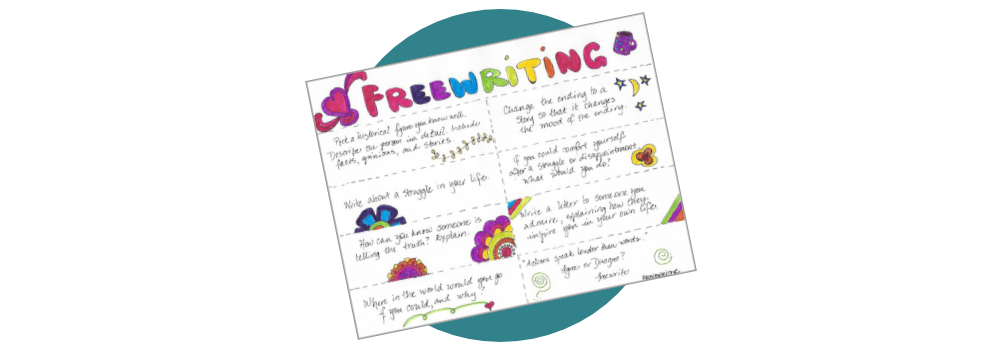Freewriting

Yes, we love alliteration. As a result we pair "Freewriting" with "Fridays." But you don't have to! Amazingly, freewriting works any day or the week just as well.
Freewriting is that wonderful key that unlocks the writer within. It’s the vehicle by which we trick our inner selves into divesting the words and ideas that we want to share but are afraid won’t come out right on paper if we do. The term “freewriting” comes from Peter Elbow, author of Writing with Power.
Brave Writer is founded on the idea that we're all writers. Becoming comfortable with written self-expression happens naturally when we are given the freedom to make mistakes, explore our thoughts and ideas in a supportive environment, and when we have the opportunity to pay more attention to what we want to say than how we are going to say it. Freewriting is the tool that helps novice writers as well as it helps professional writers make written self-expression as natural as speech.
Use the Friday Freewrite as a time to explore new topics, to journal or to draft if you are in the middle of a writing project. Everyone ought to freewrite together, including mom. It really helps!
Another Brave Writer principle is that writing goes better if everyone takes the same risks. Therefore, I strongly encourage that freewriting is done by kids and parents together. Each person has full ownership over his or her writing so you are free to share it or not with each other. But I recommend that when you do ask kids to share, parents share as well.
One way to begin is to freewrite each week for a limited time, without anyone sharing their writing. Let the writing happen and then put it away. Allow your children the opportunity to write without risk. Let them experience the power of writing for themselves as the primary audience before you start reading their writing. You may be surprised when they finally ask you to read what they wrote!
When a child takes the risk to share his or her writing, two principles ought to be followed in responding to writing:
- Notice a concrete aspect of the writing that you like (for instance, a clever word pair, vivid detail, a surprising vocabulary word). Next notice one aspect of the content you will remember from the freewrite. Share that with the writer.
- Positive feedback helps kids (and moms!) to be willing to risk again. If we focus on what works, oftentimes what didn’t work will simply drop away in subsequent writing.
For more help with freewriting, click here.
Find more Friday Freewrite prompts on our blog.

For Julie's hand-lettered Freewriting PDF sign up here.
(Top image by Brave Writer mom, Chasity)
